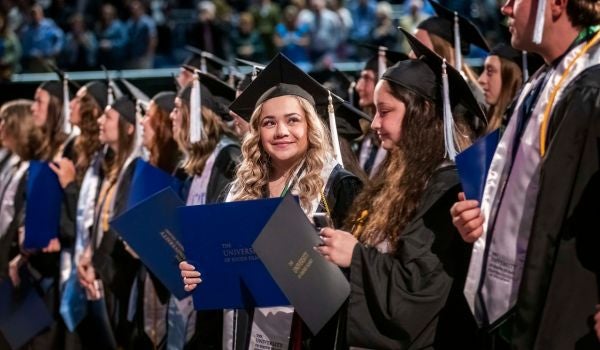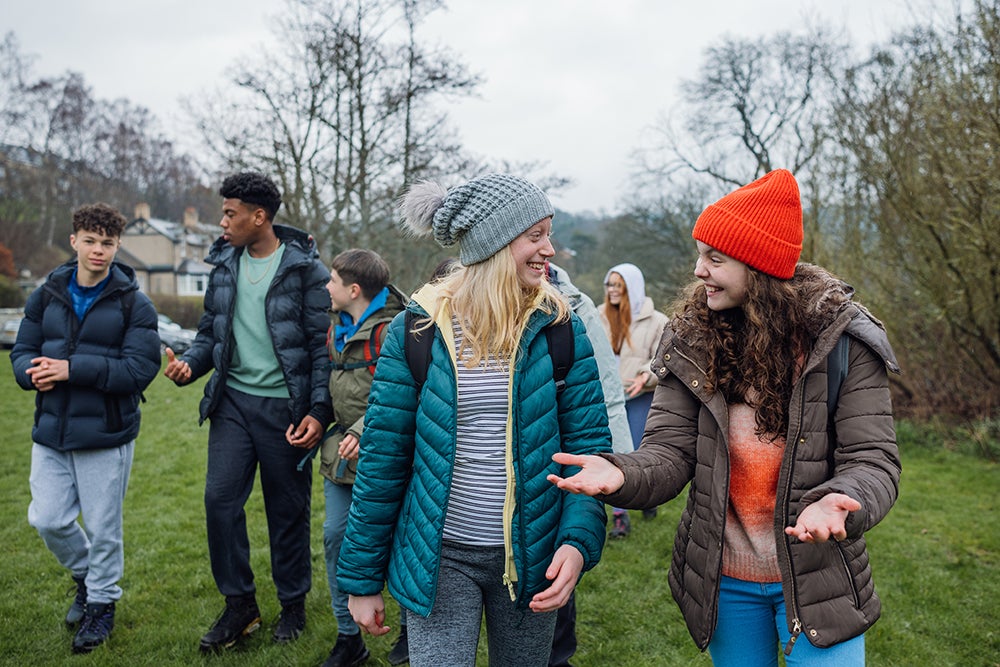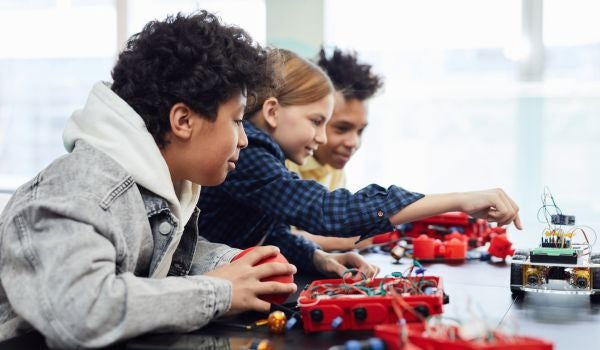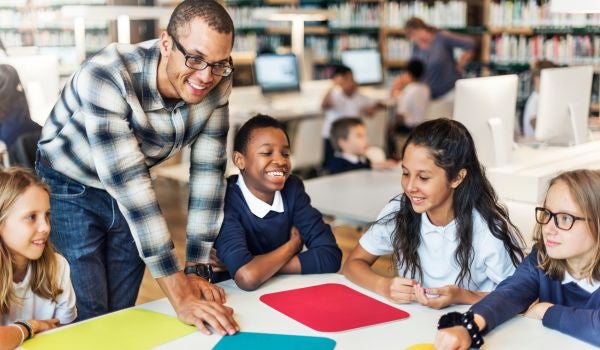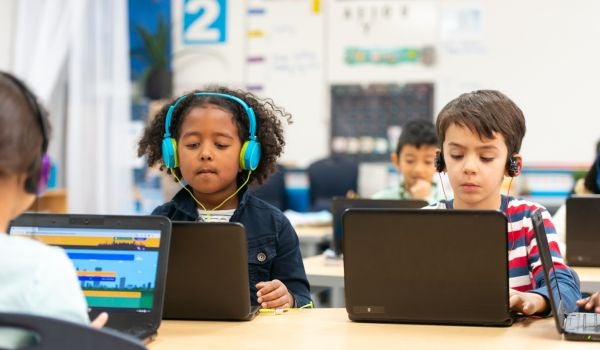Faculty research in the College of Education covers a broad range of topics, all of which are connected to our core values around community engaged scholarship, equity, and inclusion. Below are some specific areas of research expertise, with links to each scholar’s faculty profile page containing more detailed information.
Research Focus Areas
Labs and Outreach
Theory in Practice
Learn how College of Education research can impact everyday educational practice.
Adult/Higher Education
- Lazaro Camacho, Jr. studies the intersection of identity development and educational pathways through a focus on men and masculinities, men of color, intersectional socialization, leadership development, and mentorship.
- Kayon Murray-Johnson studies critical dialogues (race focus), effective and equity focused methods for facilitating faculty and students – and immigrant experiences in higher education.
- Kathy Peno’s scholarship focuses on professional learning and skill development from novice to expert, with a focus on mentoring, in particular.
- Annemarie Vaccaro is a higher education scholar-practitioner, social justice educator, and critical researcher whose scholarship has focused on: students with disabilities transitioning out of college, LGBTQ students in STEM fields, and teaching and learning praxis for graduate students.
Equity and Inclusive Practice
- Tashal Brown focuses on race, ethnicity, and gender; urban education; diversifying the teacher workforce; social justice-oriented curriculum and pedagogy; community-engaged research; and participatory action research.
- Emily Clapham’s research has centered on health and physical literacy, girls sport and physical activity participation, surf therapy for children with disabilities, and the effects
- Amy Correia’s areas of focus are evaluation of language program models, educator preparation in TESOL education, and advocacy in multilingual learner education of kinesthetic classrooms.
- Laura Hamman-Ortiz’s research explores how to cultivate more critically oriented, affirming, and inclusive learning spaces for multilingual learners. Areas of research include: translanguaging pedagogy, teacher education/praxis, language policies and ideologies, student identity negotiation, and biliteracy development.
- Hyunjin Kim specializes in early childhood teacher education, emphasizing evidence-based practices, workforce development, early learning standards, and program quality. She also delves into teaching motivation, efficacy, multicultural education, urban education dynamics, and underscores the significance of partnerships between families, schools, and communities in the educational landscape.
- Nicole King researches how to prepare teachers to create more linguistically, culturally, and racially just and humane spaces for learning and teaching. Areas of research: translanguaging repertoires in pre-and in-service language teachers, multilingual students’ language ideologies, language use, and positioning, community-as-pedagogy mindset.
- Adam Moore’s research focuses on inclusive education, family-centered partnerships in special education, the experiences of college students with disabilities, and social justice in teacher preparation.
- Kayon Murray-Johnson studies adult learning and faculty development, critical dialogues on race, ethnicity and racism, and inclusive teaching approaches.
- Cathy Semnoski studies family-centered practices in special education, inclusion, co-teaching, and preparation of special education teachers.
- Steve Przymus researches how translanguaging can be used in dynamic assessment of multilingual learners for a holistic intervention for determining language difference from language disability. He also collaborates with equity-based, social justice urban planners in research that combats gentrification of communities and bilingual dual language programming by advocating for a placekeeping over placemaking mentality in community and educational planning.
- Annemarie Vaccaro is a higher education scholar-practitioner, social justice educator, and critical researcher whose scholarship has focused on: students with disabilities transitioning out of college, LGBTQ students in STEM fields, and teaching and learning praxis for graduate students.
Literacy and Language
- Amy Broemmel’s practice-oriented work focuses on integrating science and literacy through the use of high-quality picture books in elementary classrooms.
- Julie Coiro studies digital literacies, online reading comprehension strategy instruction, collaborative knowledge building during inquiry, and effective practices for technology integration, digital assessment, and professional learning.
- Danielle Dennis’ expertise lies in the areas of literacy teacher education, educational policy, school-university partnerships, and teacher residencies.
- Laura Hamman-Ortiz researches the language and literacy learning experiences of bi/multilingual children and youth. Areas of research include: translanguaging pedagogy, teacher education/praxis, SFL genre-based writing instruction, and how students develop and negotiate identities as readers and writers.
- Diane Kern studies literacy teacher education, translating literacy research into policy and practice, and access to education and the education profession.
- Nicole King examines how multilingual students, teachers, and families negotiate language ideologies, language use, culture, and positioning in the expression of their identities, often through translanguaging.
- Steve Przymus uses a cognitive linguistic (conceptual metaphor and conceptual metonymy) approach for advocating for equitable bi-literacy instruction and bilingual language development. He also incorporates magic in storytelling as a way to dynamically assess the holistic linguistic abilities of multilingual youth.
Out-of-School Learning
- Tashal Brown‘s work investigates the learning opportunities fostered in community-based educational spaces that focus on social justice, culturally informed pedagogies, and the experiences of youth of color. She explores how these environments shape young people’s understanding of their sociopolitical realities, as well as their sense of identity and belonging.
- Maizie Dyess engages in out-of-school learning research through collaborations with food-waste reduction and recycling programs that support the development of sustainable habits in school-aged children.
- Nicole King seeks to illuminate the reciprocal exchange of knowledge and understanding when teachers learn to take up a community-as-pedagogy mindset in teaching and learning spaces both in and outside of the classroom setting.
- Steve Przymus‘ research includes documenting how transnational youth learn languages and develop positive identities through participation in out-of-school communities of practice, such as massively multiplayer online role-playing games (MMORPGs) and magic clubs.
- Sara Sweetman, as a STEM out-of-school learning researcher, studies how children’s television, digital games, and informal environmental education at zoos, aquariums, and nature centers use playful learning and edutainment pedagogy and inclusive practices to improve the lives of children and families.
STEM Education
- Maizie Dyess investigates the impact of racially biased educational practices on students’ access to STEM opportunities in alternative school settings. She also collaborates with citizen scientists and community members to elevate non-traditional forms of STEM knowledge.
- Jay Fogleman’s research interests include the effects of education policies on the teacher workforce, sustaining curricular reforms within district-university partnerships, and using technology to enhance preservice teachers’ teaching and learning.
- Nicole Hersey-Bertram studies learning and teaching of mathematics, mathematical thinking, and pedagogical content knowledge.
- Sara Sweetman’s research interests include children and climate change, research practice partnerships, teaching science through media, outdoor education, and the intersection of enjoyment and learning.
- Annemarie Vaccaro is a higher education scholar-practitioner, social justice educator, and critical researcher whose scholarship has focused on: students with disabilities transitioning out of college, LGBTQ students in STEM fields, and teaching and learning praxis for graduate students.
Teacher Education/Preparation
- Amy Broemmel investigates how we prepare, develop, and sustain critically thinking teachers, centered primarily on preservice and inservice teacher voices as related to their own learning and development.
- Theresa Deeney’s expertise lies in clinical teacher preparation, family engagement/perspectives, and assessment and instruction for readers who struggle.
- Laura Hamman-Ortiz’s research in this area explores how educators can be supported to enact meaningful language and literacy pedagogies for bi/multilingual students. Specific areas of inquiry include translanguaging pedagogy and SFL genre-based writing instruction.
- Hyunjin Kim specializes in early childhood teacher education, emphasizing evidence-based practices, workforce development, early learning standards, and program quality. She also delves into teaching motivation, efficacy, multicultural education, urban education dynamics, and underscores the significance of partnerships between families, schools, and communities in the educational landscape.
- Virginia Killian Lund studies multimodal composition, maker pedagogies, out of school learning, designs for learning, place-based learning, and participatory action research.
- Cathy Semnoski studies family-centered practices in special education, inclusion, co-teaching, and preparation of special education teachers.
- M. Shane Tutwiler’s research focuses on modeling growth in student learning and attitudes, modeling change in student behavior in educational virtual environments, and application of Bayesian methodologies to educational research.
- Furong Xu’s research focuses on lifetime physical activity, physical activity assessment, curriculum and instruction, and physical education teacher education.
Teaching/Learning with Technology
- Julie Coiro studies new literacies of the Internet, online reading comprehension strategy instruction, collaborative knowledge building during inquiry, and effective practices for technology integration, digital assessment, and professional learning.
- Jay Fogleman’s research interests include the effects of education policies on the teacher workforce, sustaining curricular reforms within district-university partnerships, and using technology to enhance preservice teachers’ teaching and learning.
- Minsuk Shim’s focus areas include educational policy and research methodology; educational reforms through statewide accountability, instructional practices, and assessments; instructional technology such as mobile computing and web-based courseware; and inquiry-based science instruction at elementary schools.

